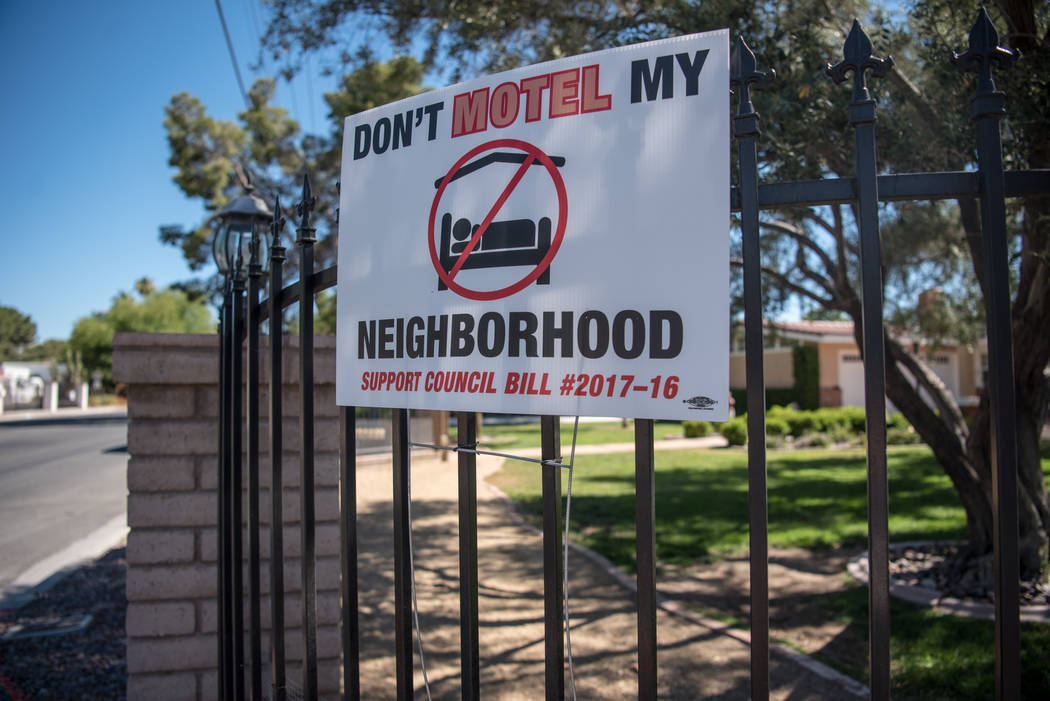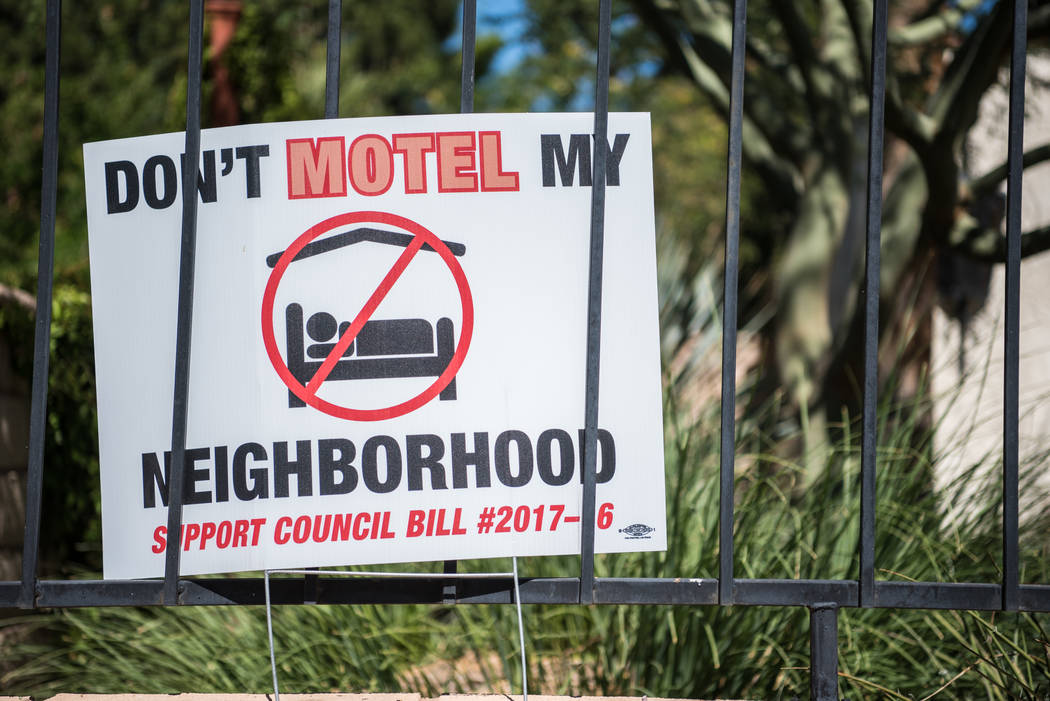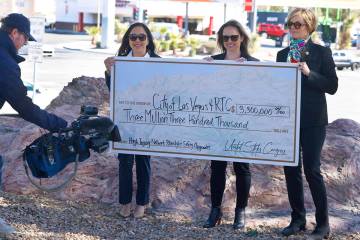Illegal short-term rentals in Las Vegas drop since crackdown
The number of unlicensed short-term rentals in Las Vegas has dropped by hundreds since the city began working with a company that has identified out-of-compliance home-sharing hosts.
An estimated 1,140 short-term rentals in Las Vegas are operating out of compliance with the city’s rules, down from roughly 1,500 in February.
The city began its crackdown a year ago when the City Council passed stricter regulations, adding a requirement for operators to obtain a special-use permit.
Calls to the complaint hotline that began accepting calls Sept. 1 have also decreased since a handful of “troublesome” rentals lost their licenses, city officials said.
“I think the fact that people have heard we mean business has really helped,” said Councilwoman Lois Tarkanian, who pushed for the 2017 regulations.
The city of Las Vegas, unlike other local governments in the valley, generally allows short-term rentals — defined as fewer than 31 days — which have grown in popularity with the rise of platforms such as Airbnb. In some swaths of the city to the west and northwest, short-term rentals are prohibited. The city sent unlicensed operators in those areas cease-and-desist letters, and 318 ceased their rental activity.
In the 2017 fiscal year, 117 licenses for short-term rentals were issued in Las Vegas. In the fiscal year 2018, which ended June 30, 30 licenses were approved.
“A big part of that (decrease) is the special-use permit process,” Deputy Planning Director Mary McElhone said.
Since the council ushered in the special-use permit requirement in June 2017, the Planning Commission and the City Council spend a significant amount of time holding public hearings on and discussing short-term rental permits for specific properties.
Short-term rentals have stirred controversy in Las Vegas, with operators and proponents arguing the city’s rules are too stringent. Opponents paint the issue as a party house problem, and say businesses don’t belong in residential areas.
Of the 139 applications the city has received for special-use permits, more than 30 have gained approval, 59 are going through the Planning Commission or City Council approval process, 27 were denied and 17 were withdrawn or canceled. The remaining four were tabled.
Later Wednesday, the council OK’d multiple special-use permits for short-term rentals and shot down another.
The city’s hotline receives an average of 80 calls per month. More than half of those calls have been complaints about short-term rentals in unincorporated Clark County, outside city boundaries.
The company the city was working with to field the hotline calls went out of business and abruptly stopped taking calls. Complaints have since been routed to Code Enforcement Section Manager Vicki Ozuna’s cellphone. That will change when a new company will begin fielding the calls starting in August.
The city spends nearly $467,000 annually on the program. The bulk of the money goes to staff costs, and the city is paying the company UHost $35,000 to help identify unlicensed short-term rentals, and the $2,400 to operate the complaint hotline.
The city has levied roughly $141,000 in penalties on unlicensed operators and has so far collected a fraction of that amount.
Contact Jamie Munks at jmunks@reviewjournal.com or 702-383-0340. Follow @Journo_Jamie_ on Twitter.
Related
Las Vegas homeowner fined $72,900 for using Airbnb without license
CSN class a crash-course in operating short-term rentals
Las Vegas targets downtown high-rise short-term rentals
Short-term rental companies must report data to Las Vegas
In other action
The Las Vegas City Council on Wednesday approved a $90,000 settlement with former fire training officer Michael D. Jackson who sued the city for wrongful termination and Tim Hacker's appointment as chief of public safety services, with an annual $195,000 salary.
Hacker has been the city's director of parks and recreation since 2014. He was previously the city manager in North Las Vegas and Mesquite. Hacker will oversee the city's public safety department, Municipal Court and Las Vegas Fire & Rescue, which retiring Deputy City Manager Orlando Sanchez has overseen. Sanchez is retiring at the end of the month.






























